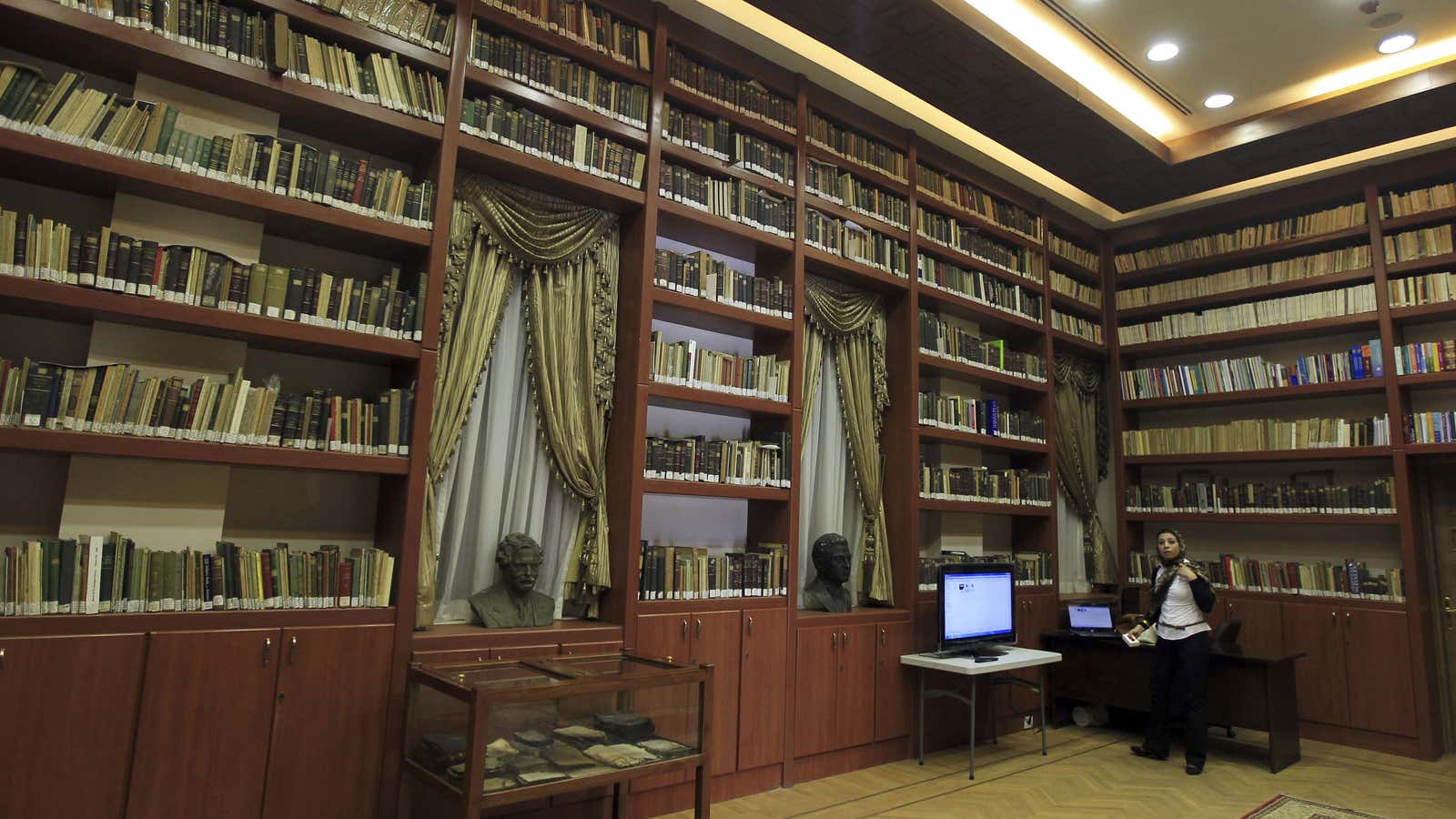When Bushra al-Fadil landed in London to receive the 2017 Caine Prize for African Literature, he spent a day perusing the library of the School of Oriental and African Studies.
He felt a pang of sadness when running his fingers through an early edition of the quintessential African novel Things Fall Apart by Nigerian Chinua Achebe.
“I saw original copies of Achebe’s work in Yoruba and English,” he says. “I even saw Nubian languages in all their diversity preserved beautifully and I thought to myself what a shame that these masterpieces could not be in the libraries of our countries. We should have institutes that honor them.”
Al-Fadil, 65, a Sudanese novelist who was expelled for his political dissidence from his country and has been living in Saudi Arabia since 1992, won the prestigious prize breaking several records in the process.
Apart from being the oldest winner, he is the first African writer to claim the prize for writing in his Arabic mother tongue and away from his homeland.
“It was a pleasant surprise for me as I did not know that the previous Sudanese winner Leila Abou Elela had written her stories in English”.
She was awarded the same prize in 2000. The Caine Prize for African Writing, now in its eighteenth year, is named after the late Booker Prize chairman Michael Caine who championed emerging African literature. Some of the previous winners have included Zimbabwe’s star writer No Violet Bulawayo and Sierra Leone’s Olufemi Terry.
“For me to write in Arabic and to win, shows us that translation widens the horizons for authors from Arab and African countries” he added.
African literature has seen a renaissance in the last decade in part thanks to awards like Caine Prize, Brunel International African Poetry Prize and the Etisalat Prize for Literature. But the interest has also come from an increased curiosity about a rising Africa narrative as well as the, mainly young, African writers keen to tell their own stories in their own voice. These writers have also found a more willing audience in the Western countries which dominate the publishing world as readers seek out authentic voices. The success and high profile of Nigerian author Chimamanda Ngozi Adichie in particular as well as newer voices like Bulawayo, Tope Folarin, E C Osundu, Binyavanga Wainaina, and Helon Habila has also been encouraging.
Al-Fadil’s story The Story of The Girl Whose Birds Flew Away was first published in Arabic in 1979 and was subsequently translated into English by Max Shmookler in 2016 and included in the edited collection The Book of Khartoum.
However, he does not delve into national affiliations and prefers to see himself as a writer and translator.
“I am a Sudanese writer who happens to live in Sudan and Saudi Arabia, like Lorca who said I am a writer who lives in Spain. I even honor my Nubian roots, from southern Egypt, in the process of writing. I write in Arabic and my culture is Arab in the main but I am Sudanese and Muslim, which is complicated in itself” he said.
Originally a poet, he has authored several short stories collections, writes regularly on Sudanese and African politics and specializes in Russian literature, which he taught at Khartoum University until he was fired in June 1992 for protesting student exams which were held until martial law.
Al-Fadil maintains that the form of the novel has exploded in its creativity and experimentation on the continent.
“It is ironic that there is a genuine hunger for Arab literature in western countries and beyond, while illiteracy rates among our people are soaring…There should be quality education as a right on the continent as start”.
He points to upcoming generations that should be supported by their countries and sees that the major African economies must make more of an effort to endow the arts.
“Nigeria, Egypt and South Africa could be leading pillars in promoting the cultural industry on the continent because of their geographic breadth and their large populations”, he added.
